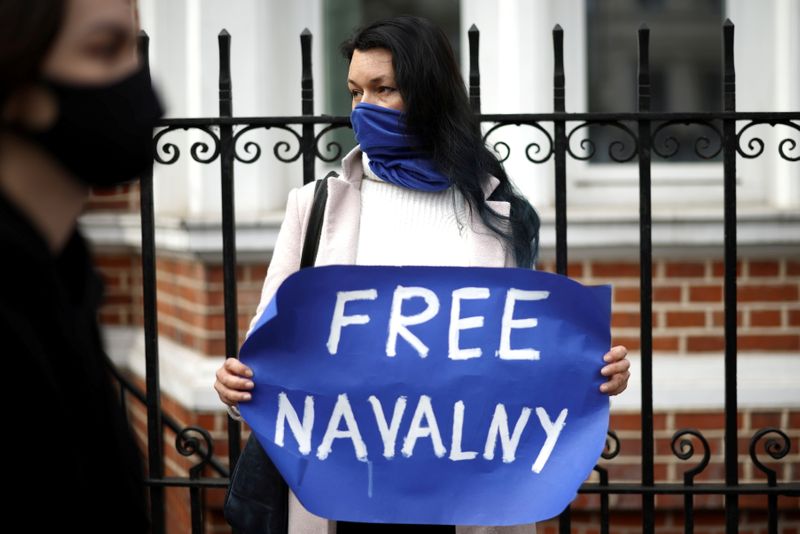MOSCOW (Reuters) - A Russian court imposed undisclosed restrictions on Tuesday on jailed Kremlin critic Alexei Navalny's anti-corruption group, while it considers a request to ban his network as "extremist".
The Moscow court held a preliminary hearing on Monday to consider outlawing Navalny's Anti-Corruption Foundation (FBK) as well as his separately run network of regional campaign offices.
The court is hearing the case behind closed doors because authorities say it contains classified information. Navalny's followers mocked Tuesday's announcement, which banned the FBK from certain activities without disclosing what they were.
"Today a 'court' banned the FBK from unknown activities. Soon they'll declare us all extremists at a secret hearing. Everywhere you look it's absurd," Navalny's team wrote on social media.
President Vladimir Putin's most prominent critic gained his exposure as an anti-corruption campaigner, using the FBK to release often caustic videos investigating the huge wealth of senior officials he refers to as "swindlers and thieves".
His regional offices have functioned as a nascent political movement, supporting candidates against the ruling party, although he was barred from standing against Putin.
The prosecutor already ordered the regional offices to suspend activities on Monday. The FBK, which has a different formal legal status from the regional offices, cannot be suspended without a court order.
The next hearing is due on Thursday.
If Navalny's network is declared extremist, authorities will gain the legal power to hand down jail terms to activists and freeze bank accounts, essentially forcing the network to stop campaigning or go underground.
Navalny is in jail serving a 2-1/2 year sentence for parole violations on an earlier conviction that he and his supporters say is politically motivated.

Last week he ended a hunger strike after more than three weeks protesting against what he described as inadequate medical treatment. Moscow says he is being treated as would any other prisoner.
